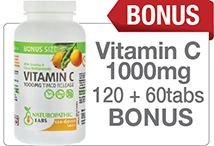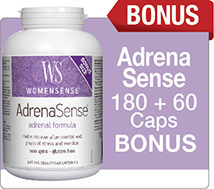Heart Attack
Updated Aug. 15th, 2019
The lack of blood flow is most commonly a result of a thrombus, or clot, in one of the two major coronary arteries lying along the outside surface of the heart. It is one of the leading causes of death in North America. Infarcts are classified according to the location, depth and severity of the damage.
Heart attack used to be considered a men’s health issue. Today, heart disease is the leading cause of death in postmenopausal women in North America. The signs and symptoms of a heart attack (see below) tend to be slightly different in women. Given the prevalence of cardiovascular events in women of all ages, education about these unique signs is necessary. Read more about heart disease here.
Causes
Heart attack risk is increased based on numerous factors, including family history, diet and lifestyle. You are at a higher risk for heart disease, heart attacks and strokes if you have family members who have experienced these events. A diet high in saturated fats but low in vegetables and fruit will negatively impact your heart health. If you are a smoker or a heavy drinker of alcohol then you will also be at a heightened risk for atherosclerosis, cardiovascular diseases and MI. Some other common risk factors include lack of exercise and chronic stress.
Signs/Symptoms:
The typical signs and symptoms of heart attack include:
· Pressure or crushing sensation in the centre of the chest, sometimes radiating to jaw, shoulder or arm.
· Sweating
· Fatigue
· Anxiety or feeling of impending doom
· Increased heart rate
· Increased respiration rate with or without shortness of breath
· Pallor
· Nausea or vomiting
* In elderly populations and WOMEN, there is often an absence of chest pain
Other signs/symptoms that are typically unique to women:
· Indigestion or gastrointestinal upset
· Unusual fatigue or feeling like one is going to faint
· Sleep disturbance
· Jaw pain
Note: take aspirin and go seek emergency med attn @ 1st sign to prevent permanent cardiac damage
Conventional Treatments
After heart attack has been confirmed, the immediate goal of treatment is to quickly open the blocked artery and restore blood flow to the heart muscle. Thrombolytic (clot dissolving/clot breaking) medications are commonly prescribed. Nitroglycerin, Angiotensin converting enzyme (ACE) inhibitors, Calcium channel blockers, and diuretics, cholesterol lowering medications, as well as blood thinners are all commonly recommended following a heart attack. All of these medications come with their own warnings, potential interactions and side effects and should be used with a complete understanding of what they are being used for, what to expect in terms of side effects, and important deficiencies they may cause.
The Natural Approach
NUTRITION
First and foremost, individuals with a high risk for cardiovascular events need to be closely following a heart healthy diet. These diets focus on vegetables and fruits, whole grains and lean proteins. Avoid saturated fats and trans fasts, deep fried foods, margarines, shortening and heating of polyunsaturated oils. Instead, there is a focus on good fats - use a good quality olive oil and add oil to foods once they are finished cooking/ready to eat. If you must cook/fry with oil, use a non-hydrogenated coconut oil. Limit refined sugar. If you must sweeten food, use raw honey, maple syrup, agave nectar or stevia. Limit alcohol intake. Avoid processed foods, as they are high in nitrates and sodium and other artificial preservatives. Eat fish twice a week, and take a good quality fish oil when you aren’t consuming fish. Drink plenty of water. For more in depth information on the Mediterranean diet, see our article.
Exercise
Weight loss, or maintenance of a healthy body weight is integral to heart health. Talk to your doctor or naturopath about safe cardiovascular and weight bearing exercise to keep body (and heart) healthy. Yoga is an excellent way to tone the body and core, while encouraging proper breathing techniques, promoting deep relaxation and better regulating our stress response.
Supplementation
Supplementation for the treatment and prevention of heart attack is very individual and will depend on your current medication regime, symptoms, deficiencies, diet and lifestyle. Some very effective and widely used treatments include magnesium, L-arginine, Taurine, CoQ10, Niacin, Potassium, L-carnitine, hawthorn, garlic and fish oil (omega 3 fatty acids; EPA and DHA).






















